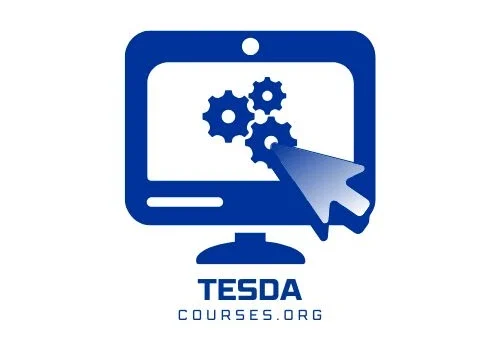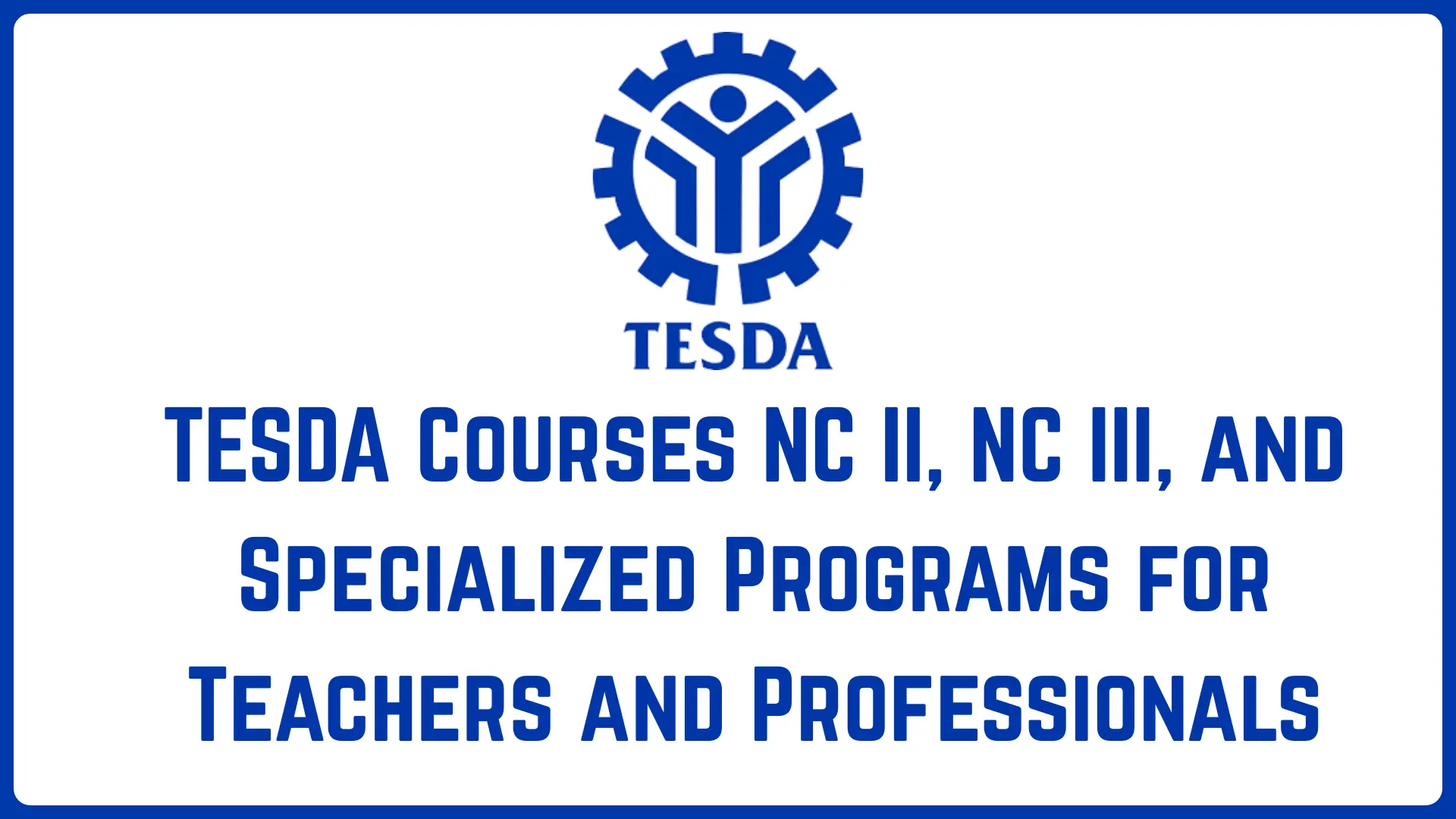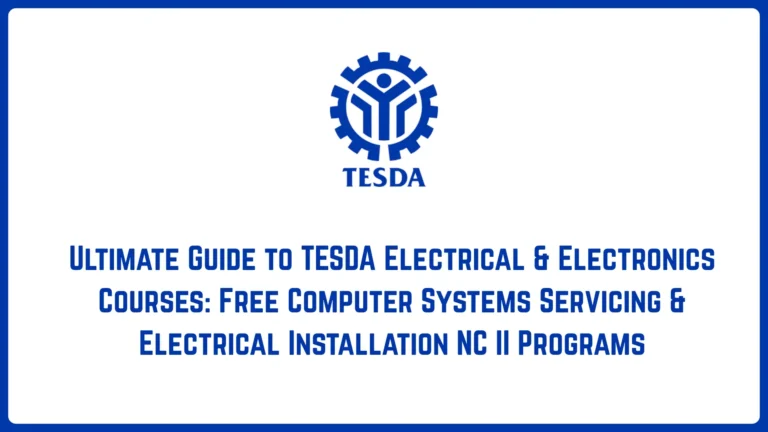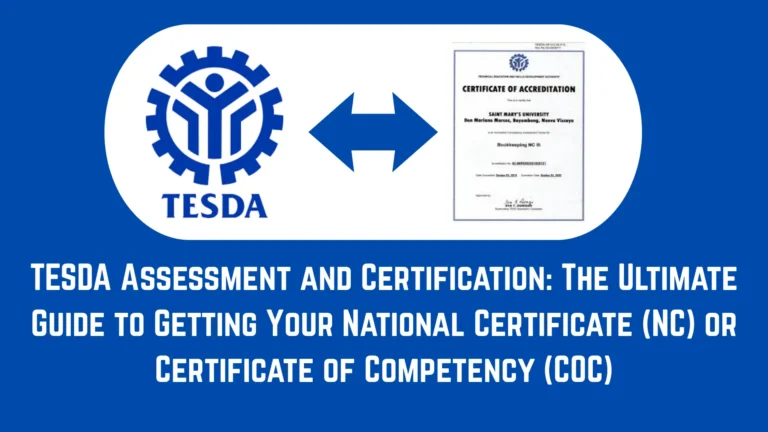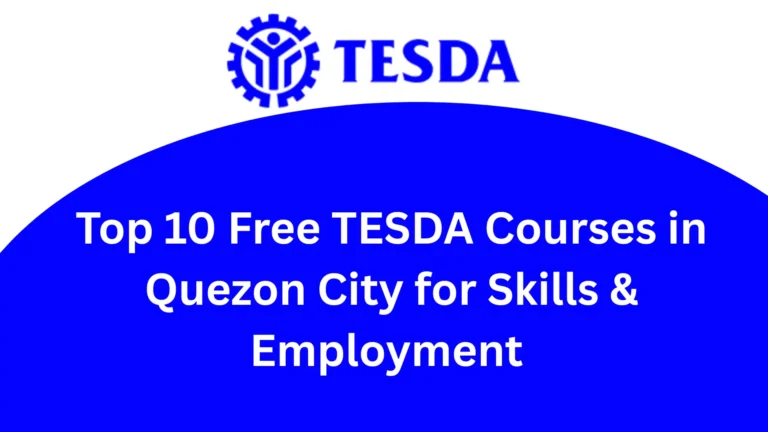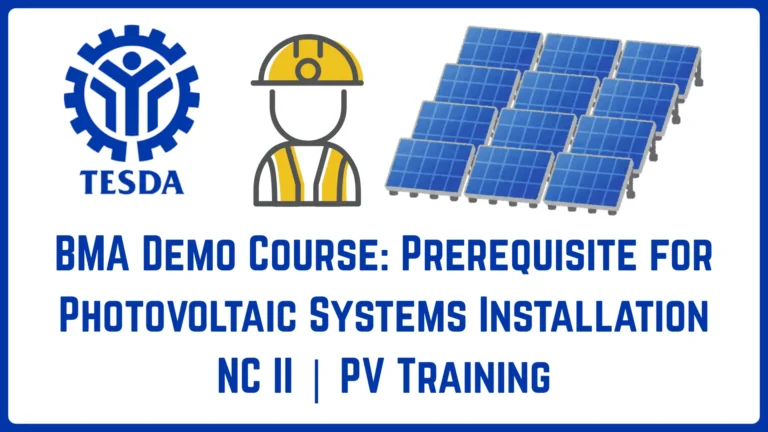TESDA Courses NC II, NC III, and Specialized Programs for Teachers and Professionals
Introduction: Unlocking Potential with Technical Education
In the Philippines, the Technical Education and Skills Development Authority (TESDA) stands as a beacon of opportunity, providing millions of Filipinos with the practical skills and certifications needed to thrive in a competitive global economy. TESDA courses are more than just training programs; they are gateways to employment, entrepreneurship, and professional advancement. Whether you’re a fresh graduate, a skilled worker seeking validation, or a professional like a teacher looking to diversify your skillset, the National Certificate (NC) system offers a structured path to recognized competence.
This ultimate guide will navigate the expansive landscape of TESDA qualifications. We will delve into the differences between NC II and NC III courses, explore the critical importance of these certifications, and highlight specific upskilling opportunities, including highly relevant TESDA NC2 courses for teachers and the value of an NC II for English teachers.
Understanding the Philippine TVET System: NC I, NC II, NC III, and Beyond
The heart of TESDA’s offering is the Technical Vocational Education and Training (TVET) system, which is categorized into different competency levels. Understanding this hierarchy is key to choosing the right course.
- National Certificate Level I (NC I): This is the entry-level qualification. It covers basic competencies for simple tasks and often requires no prior experience. It’s for individuals who need foundational skills to enter a specific industry.
- National Certificate Level II (NC II): This is the most common and widely recognized level. NC II courses require performing a specific range of skills with a moderate level of independence. This level is suitable for those aiming for para-professional or skilled worker positions (e.g., Electrician, Cook, Caregiver).
- National Certificate Level III (NC III): This represents a higher degree of competence. NC III courses involve mastering complex skills and often include responsibilities like planning, troubleshooting, and supervising others. They may require an NC II in the same field as a prerequisite.
- National Certificate Level IV (NC IV): This is a senior level, equivalent to a supervisory or technical specialist role. It involves advanced analytical, diagnostic, and design skills.
- Diploma: The highest level, involving a comprehensive range of technical, professional, and management skills.
Why Pursue a TESDA NC II or NC III Certification?
The value of a TESDA certificate extends far beyond a piece of paper.
- National and Global Recognition: Your NC II or NC III is a credential recognized by industries across the Philippines and by employers worldwide, especially for in-demand skilled professions.
- Enhanced Employability: In a competitive job market, a National Certificate provides tangible proof of your skills, giving you a significant advantage over non-certified applicants.
- Higher Earning Potential: Certified technicians and professionals often command higher salaries due to their validated expertise.
- Path to Entrepreneurship: Many courses, like Cookery NC II or Bread and Pastry Production NC II, provide all the skills needed to start your own small business.
- Professional Development: For licensed professionals like teachers, a TESDA certification represents valuable cross-skilling that can open doors to new income streams and teaching specializations.
A Deep Dive into NC II Courses: The Foundation of Skills
NC II courses form the backbone of the TESDA program portfolio. They are typically 3-6 months long and are highly hands-on. Popular and in-demand fields include:
- Information and Communication Technology (ICT): Computer Programming, Visual Graphic Design, Technical Drafting.
- Tourism: Food and Beverage Services, Cookery NC II, Bread and Pastry Production NC II, Housekeeping.
- Automotive and Land Transport: Driving NC II, Automotive Servicing.
- Construction: Electrical Installation and Maintenance (EIM) NC II, Carpentry, Masonry.
- Health and Social Services: Caregiving NC II, Health Care Services.
Advancing Your Expertise: The Value of NC III Courses
For those looking to advance beyond an entry-level skilled position, NC III courses are the logical next step. These programs are designed for:
- Supervision and Leadership: Moving from a doer to a manager or team leader.
- Specialization: Gaining deeper expertise in a complex area.
- Troubleshooting and Problem-Solving: Learning to diagnose and solve non-routine problems.
Examples of NC III courses include:
- Tourism: Travel Services NC III, Commercial Cooking NC III
- ICT: Animation NC III, 3D Graphics Technology NC III
- Construction: Carpentry NC III, Electrical Installation and Maintenance NC III
- Other Trades: Dressmaking NC III, Shielded Metal Arc Welding (SMAW) NC III
Pursuing an NC III demonstrates a commitment to your craft and positions you for senior technical or supervisory roles.
TESDA NC2 Courses for Teachers: Expanding Your Educational Arsenal
For licensed professional teachers, engaging in TESDA NC2 courses for teachers is a powerful strategy for career enhancement and personal development. This is not about replacing their profession but augmenting it with valuable, practical skills.
Why should a teacher consider a TESDA course?
- Livelihood Education Integration: Teachers, especially those handling Technology and Livelihood Education (TLE) subjects, can gain first-hand, industry-relevant experience to make their lessons more practical and engaging.
- Advisership for School Clubs: A teacher certified in Cookery NC II can expertly advise a cooking club. A teacher with a Visual Graphic Design NC II can lead a digital arts club.
- Alternative Income Streams: Skills acquired from TESDA can be leveraged for part-time entrepreneurship or consultancy outside of school hours (e.g., baking cakes, providing graphic design services, managing events).
- Enhanced Student Guidance: With direct knowledge of technical-vocational paths, teachers can provide better career advice to students who may be better suited for skilled trades than a traditional university degree.
NC II for English Teachers: A Specialized Upskilling Path
The concept of an NC II for English teachers is particularly insightful. While there isn’t a course by that exact name, the principle is about an English teacher acquiring a technical skill to make their teaching more effective and marketable.
An English teacher could pursue any number of TESDA NC2 courses to add a layer of context to their instruction. For example:
- Tourism-Related Courses (e.g., Food and Beverage Services NC II, Travel Services NC II): This provides real-world context for teaching English for Specific Purposes (ESP). The teacher can create lessons based on actual scenarios in the hospitality and tourism industry, making the language learning directly applicable for students aiming for those careers.
- Visual Graphic Design NC II: This skill allows an English teacher to create more engaging, professional-looking instructional materials, presentations, and visual aids, enhancing student comprehension and engagement.
- Contact Services NC II: This course covers effective communication, customer service, and front-office operations—all areas rich with language-learning opportunities for business English contexts.
By obtaining an NC II, an English teacher transforms from a pure language instructor into a versatile educator who can bridge the gap between language and practical application, significantly increasing their value to students and institutions, particularly those with technical-vocational tracks.
How to Choose the Right TESDA Course for You
Selecting the right program is crucial. Consider these factors:
- Interest and Passion: Choose a field you enjoy. You will be more motivated to complete the training and excel in the assessment.
- Career Goals: Align your course with your long-term professional objectives. Do you want to get a job abroad? Start a business? Enhance your current profession?
- Industry Demand: Research which skills are in high demand locally and internationally. The TESDA website often publishes lists of high-demand qualifications.
- Training Center Quality: Choose a TESDA-accredited training center with a good reputation, modern equipment, and competent trainers.
The Journey to Certification: Enrollment, Training, and Assessment
The process is straightforward:
- Find a Course and Accred Center: Use the official TESDA website’s search tools to find offered courses and nearby accredited institutions.
- Inquire and Enroll: Contact the center for requirements, which usually include a birth certificate, diploma, and ID pictures. Scholarship programs (TWSP) are often available.
- Undergo Training: Attend the training program, which combines theoretical learning with hands-on practical exercises.
- Pass the Competency Assessment: Schedule and take the assessment at a TESDA-accredited assessment center. It involves a practical demonstration, a written test, and sometimes an interview.
- Receive Your National Certificate: Upon passing, you will be awarded your NC II or NC III, a nationally and globally recognized proof of your skills.
Conclusion: Your Skill-Based Future Starts with a TESDA Course
The landscape of TESDA courses offers a viable, respected, and empowering alternative and complement to traditional academic paths. From the foundational NC II courses to the advanced NC III courses, these programs are meticulously designed to meet the actual needs of the economy.
For teachers, embracing TESDA NC2 courses for teachers is a strategic move towards becoming a more holistic and effective educator. The pursuit of an NC II for English teachers, or any technical skill, is not a divergence from their field but an enrichment of it, providing students with the invaluable combination of language proficiency and practical, real-world context.
Your journey toward technical mastery and professional certification begins with a single step. Explore the vast offerings of TESDA, find the course that ignites your passion and aligns with your goals, and unlock your potential to build a more secure and prosperous future.
